What causes snoring?
Snoring happens when you can’t move air freely through your nose and throat during sleep. This makes the surrounding tissues vibrate, which produces the familiar snoring sound. People who snore often have too much throat and nasal tissue or “floppy” tissue that is more prone to vibrate. The position of your tongue can also get in the way of smooth breathing.
Since there's no singular answer to “why do people snore”, it’s important to understand the many different potential causes behind your snoring. Once you understand why you snore, you can find the right solutions to a quieter, deeper sleep—for both you and your partner. Let’s mention some common causes of snoring.
Age
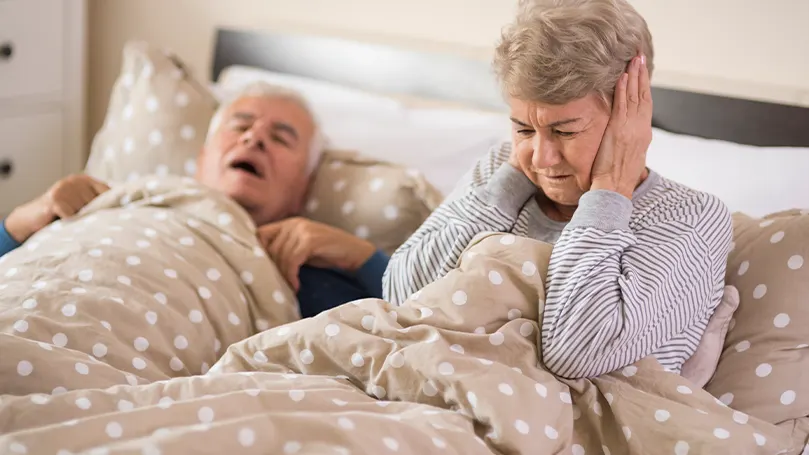
As you reach middle age and beyond, your throat becomes narrower, and the muscle tone in your throat decreases. While you can’t do anything about growing older, lifestyle changes, new bedtime routines, and throat exercises can all help to prevent snoring. So, don't lose hope from the get-go!
Being overweight or out of shape
Fatty tissue and poor muscle tone contribute to snoring. Even if you’re not overweight in general, carrying excess weight just around your neck or throat can cause snoring. So, take note of whether your excess weight tends to form around your neck.
Exercising and losing weight can sometimes be all it takes to end your snoring. Not to mention that you'll also be generally healthier – so, there's no reason not to try.
Genetics
Men have narrower air passages than women and are more likely to snore. Plus, certain features like a narrow throat, a cleft palate, enlarged adenoids, and other physical attributes that contribute to snoring are often hereditary. Again, while you have no control over your build or gender, you can control your snoring with the right lifestyle changes, bedtime routines, and throat exercises.
Nasal and sinus problems
Blocked airways or a stuffy nose make inhalation difficult and create a vacuum in the throat, leading to snoring. Make sure you see a doctor about your sinus issues and you might get proper medication that can help with that. And of course, make sure to blow and clean your nose frequently or use nasal sprays when necessary.
Alcohol, smoking and medications
Alcohol consumption, smoking, and certain medications, such as tranquillizers like lorazepam (Ativan) and diazepam (Valium), can increase muscle relaxation leading to more snoring. So, it might be wise to put away that nightcap.
Sure, it can help you fall asleep more quickly, but there's no point in doing so if your snoring wakes you up again.
Your sleeping position
Sleeping flat on your back causes the flesh of your throat to relax and block the airway. Changing your sleep position can help. So, try sleeping on your side or even on your stomach.
And while that might seem easier said than done, don't worry. We'll feature some tips later on that can help you make this change.
Sleep disorders
Snoring can sometimes be a sign of underlying medical issues, and they're not always very obvious. For example, sleep disorders like insomnia can actually cause snoring as a lack of sleep can make the throat muscles relax and thus stop air from moving unobstructed. The same applies to sleep deprivation.
On the other hand, you also have more obvious sleep disorders, like Obstructive Sleep Apnea Syndrome. This disorder causes a person to gasp for air and produce a snoring noise due to blocked airways and can cause serious issues with sleep quality. We will talk about Obstructive Sleep Apnoea (it can be spelt either way) in the following segment.
Snoring types
Snoring can be broken down into the following categories: nasal snoring, mouth snoring, and tongue snoring. Each one has different causes and treatments. Plus, there's OSA, which could be considered in a league of its own.
Nasal snoring
Nasal snoring occurs when nasal passages have been blocked by those suffering from ailments like colds, flu, and allergies. These blockages in the nasal passages force an increasing amount of air through your mouth, creating a vibration which translates into a snoring sound.
Mouth snoring

“Mouth Snoring” is the result of the soft tissues of the palate vibrating against one other. It’s common to those who breathe through their mouths while sleeping, and in particular, can occur when those who breathe through their mouths sleep on their backs or on their sides.
Tongue snoring
Your tongue can play a big part in snoring, as it can block or restrict airflow to your lungs. The tissues in your mouth and throat naturally relax as you sleep, and your tongue can relax to the point that it deviates from its normal position and ends up farther back in your throat.
This type of snoring is quite common and is often exacerbated using alcohol, antihistamines, or sleep aids before bed, as this further relaxes the soft tissues of the palate.
Sleep apnea or OSA
Another potential cause of snoring is the condition known as Sleep Apnea. This is a common, and usually chronic condition characterised by long pauses between breaths during sleep. Oftentimes the pauses are followed by gasping, choking noises or a loud snort, which may or may not wake the person affected.
As with a deviated septum, sleep apnea sufferers are many times not aware they suffer from this condition, and in many cases, it’s your sleeping partner who notices the patterns associated with sleep apnea. So, if you find yourself waking up in the middle of the night for no apparent reason and/or your partner always looks slightly exhausted, ask them whether you make any concerning noises during the night.
Alternatively, you can use different devices and apps in order to record yourself during the night and find out that way.
Self-help strategies for snoring
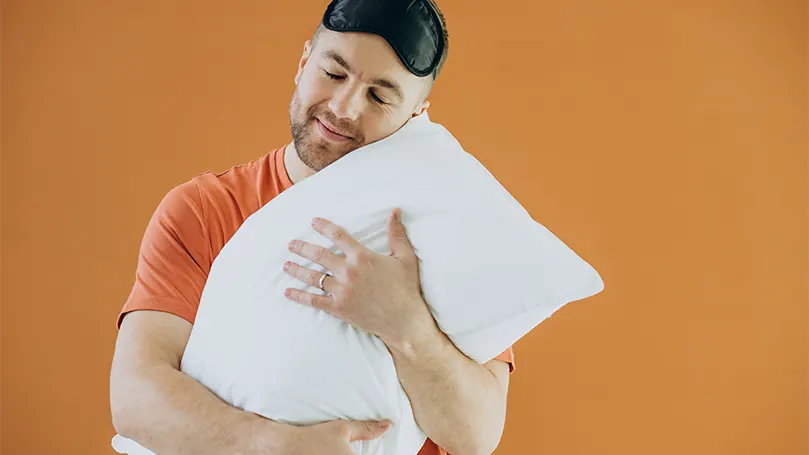
There are so many bizarre anti-snoring devices available on the market today, with more being added all the time, that finding the right solution for your snoring can seem like a demanding task.
Unfortunately, many of these devices are not backed up by research, or they work by simply keeping you awake at night. There are, however, plenty of proven techniques that can help eliminate snoring. Not every remedy is right for every person, though, so putting a stop to your snoring may require patience, lifestyle changes, and a willingness to experiment with different solutions.
But if you do want a product that can make things a bit easier, we have two suggestions. First off, try getting a proper anti-snore pillow. As we'll discuss later on, propping your head up can help a lot more than you'd imagine. Plus, anti-snore pillows tend to be high-quality products in general, so you might get a comfier sleep out of the deal as well.
Our second suggestion is to get good earplugs for sleeping. No, this isn't exactly the best anti-snoring device but it can make things a lot easier. If you live alone, it can stop you from waking yourself up and if you share the bed, your partner can get much better sleep while you figure things out – as there are very few if any “how to stop snoring immediately” products that actually work as promised. So, getting some earplugs for snoring can make life a lot easier until you find a treatment that works for you.
Bedtime remedies to help you stop snoring
There are some snoring remedies that you can try right before bed that might just do the trick. So, let's go down the list and see all the little changes that could add up to quite the sleep quality boost.
Change your sleeping position
Elevating your head four inches may ease breathing and encourage your tongue and jaw to move forward. There are specifically designed pillows available to help prevent snoring by making sure your neck muscles are not crimped. Ultimately, see a professional at a sleep clinic to see how to avoid a certain sleep position and adjust your sleep preferences.
Furthermore, look into getting the best mattress that you can find for your sleeping position. Depending on your build, some mattresses are definitely better than others and you don't want to stop snoring at the cost of your health. So, try to make sure that your spine stays properly alligned.
Sleep on your side instead of your back
Changing your sleeping position can be somewhat difficult as we are all creatures of habit. However, it's not impossible. So, we suggest using the following trick if you're having issues with sleeping on your side.
Try attaching a tennis ball to the back of a pyjama top or T-shirt (you can sew a sock to the back of your top then put a tennis ball inside). If you roll over onto your back, the discomfort of the tennis ball will cause you to turn back onto your side. Alternatively, wedge a pillow stuffed with tennis balls behind your back.
It might be annoying at first but after a while, sleeping on your side will become a habit and you can dispense with the tennis balls. Just make sure your partner knows what you're doing so that you won't get some strange looks in the morning.
Try an anti-snoring mouth appliance
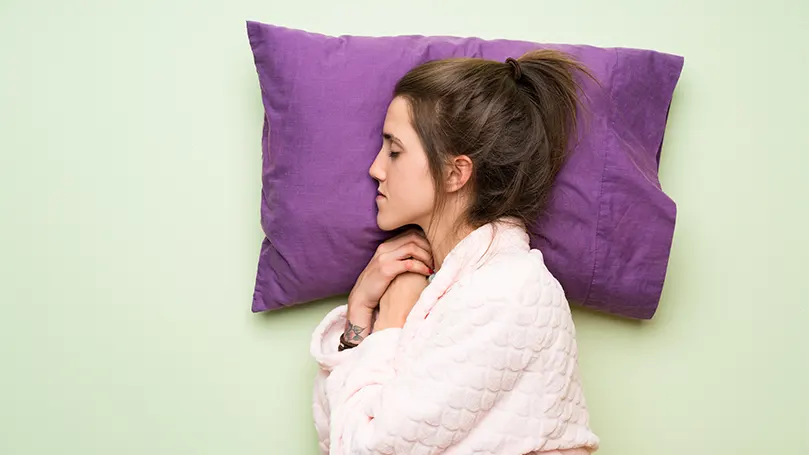
These devices, which resemble an athlete’s mouth guard, help open your airway by bringing your lower jaw and/or your tongue forward during sleep. While a dentist-made appliance can be expensive, cheaper do-it-yourself kits are also available.
It might be a bit uncomfortable initially but just bear with it. After a while, your body will get used to keeping the tongue and jaw in place and you can sleep like a baby.
Clear your nasal passages
If you have a stuffy nose, rinse your sinuses with saline before bed. Using a neti pot, nasal decongestant, or nasal strips can also help you breathe more easily while sleeping. After all, nasal congestion not only increases the odds of snoring but it can also disrupt your sleep.
And if you have allergies, reduce dust mites and pet dander in your bedroom or use some prescribed allergy medication. Also, check whether your bedding gear is hypoallergenic, as it might be the cause of your flare-ups.
Keep the bedroom air moist
Dry air can irritate membranes in the nose and throat, so if swollen nasal tissues are the problem, a humidifier may help. And if you're looking for recommendations and which humidifier to buy, we suggest taking a look at our list.
Lifestyle changes to help you stop snoring
Changing poor lifestyle habits is always a nice way to improve your life but also your sleeping quality. So, if you have any of the bad habits listed below, do your best and seek out help if necessary in order to boost your overall health as well as your sleep quality.
Lose weight
Losing even a little bit of weight can reduce fatty tissue in the back of the throat and decrease, or even stop, snoring. Plus, being a healthy weight can even improve your overall sleep quality, which is another factor when it comes to snoring. So, it's a two-for-one deal!
Quit smoking
If you smoke, your chances of snoring are high. Smoking irritates the membranes in the nose and throat which can block the airways and cause snoring. While quitting is easier said than done, it's one of the snoring remedies that you can notice almost immediately.
And if your partner smokes or you frequent cafes that have more smoke than air, try changing your environment. Ask your partner to smoke outside and go to cafes with designated no-smoking zones.
Avoid alcohol, sleeping pills and sedatives

All of these things can relax the muscles in the throat and interfere with breathing. Also talk to your doctor about any prescription medications you’re taking, as some encourage a deeper level of sleep which can make snoring worse.
And take note of when your snoring subsides/becomes more prominent, as that kay cue you in on whether any of the substances above are to blame.
Be careful what you eat before bed
Research shows that eating large meals or consuming certain foods such as dairy or soymilk right before bedtime can make snoring worse. Not to mention that certain foods can also worsen your sleep quality and thus lead to exhaustion the following day.
Maintain a healthy diet and avoid eating right before bed. And if you have any questions on which foods should or should not be eaten, see our article on what you should eat before bed.
Exercise
Exercise in general can reduce snoring, even if it doesn’t lead to weight loss. That’s because when you tone various muscles in your body, such as your arms, legs, and abs, this leads to toning the muscles in your throat, which in turn can lead to less snoring. There are also specific exercises you can do to strengthen the muscles in your throat.
Medical treatment
Although many people would like to resolve all their issues by themselves, sometimes you simply need an expert in order to get the job done. And when it comes to your health, it's always better to be safe than sorry.
After all, certain issues are very difficult or even impossible to face alone as you'd need the appropriate clinical sleep medicine or special equipment in order to treat snoring. Here are a few cases where you probably should see a professional.
You have OSA

In order to properly treat OSA, you need a Continuous Positive Airway Pressure (CPAP) machine. As the name would suggest, this machine is strapped around your mouth and nose during the night and emits positive pressure that keeps your soft palate and throat in a neutral position.
For many, getting a CPAP machine can be intimidating, and getting a good night's sleep might be a bit difficult at first, but it's often necessary. So, take a sleep apnea test if you think you might suffer from this condition (just ask your partner if you're not sure) and see a professional. And if the whole ordeal feels too stressful, we recommend finding a community that's going through the same thing online (like on Reddit).
You need a surgical procedure
Some issues require surgical treatments in order to truly be dealt with. For example, if you're born with a deviated nasal septum, you'll need a professional to take a look.
On the other hand, if you recently hurt your nose but didn't go to the doctor because “it's no big deal”, ask your partner whether your snoring started at that time. After all, getting that injury treated might just be the key to stopping your snoring issues forever.
You have issues making lifestyle changes
There's no shame in admitting that you can't seem to stop drinking alcohol or smoking of your own volition. After all, facing addiction and breaking such habits often require a bit of help along the way!
So, search for communities that have the same goal, see a therapist and talk to your doctor about ways you can make withdrawal easier on your body. Just don't give up! The same goes for exercise and losing weight.
Getting a personal trainer, talking to a nutritionist, and talking to your GP are all valid ways you can achieve these goals. So, don't beat yourself up if you can't conquer every change we've listed so far on your own. After all, there's no snoring prevention guide that will perfectly suit everyone! So, if you have some tips of your own, leave them down in the comments.
Spread the word
Related product:

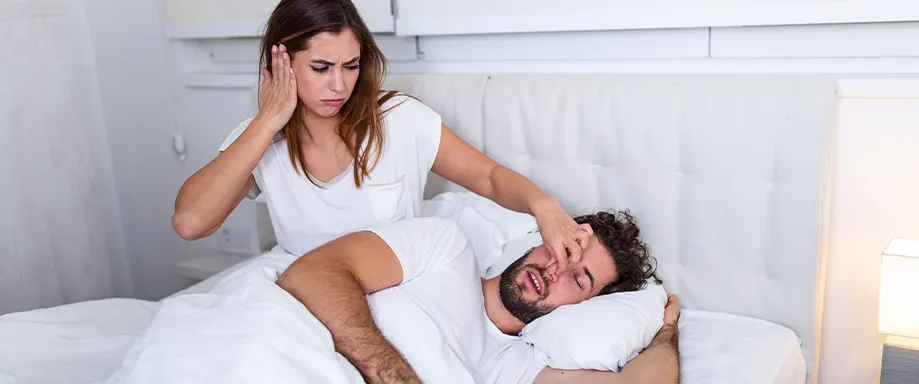
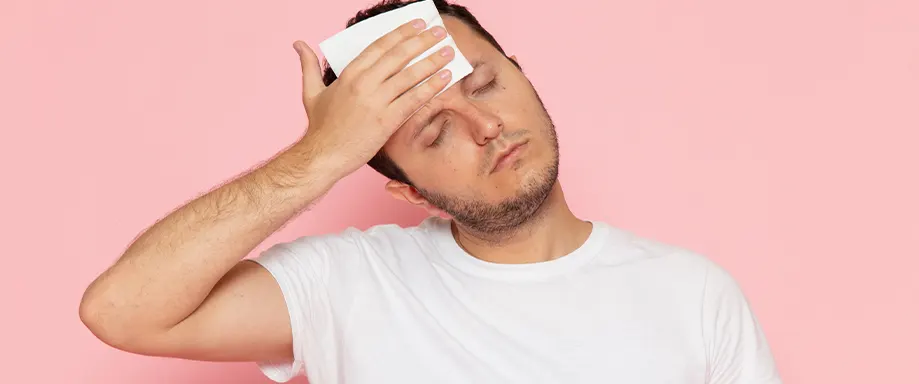












There are no comments yet
"*" indicates required fields